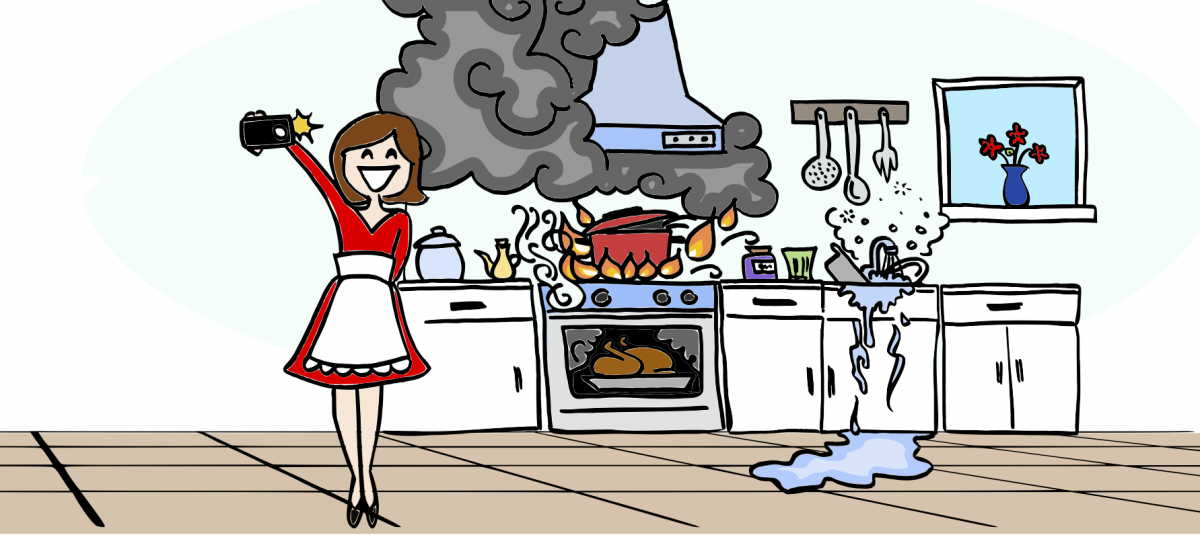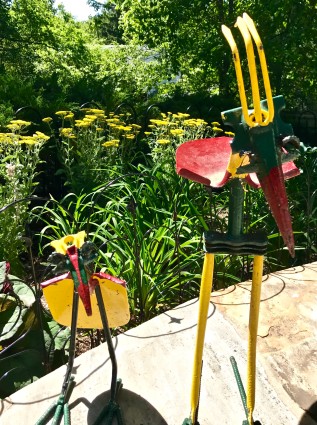
Every cook, as we all know, makes mistakes. If you are a well-seasoned cook, you can probably creatively “fix” most kitchen errors. But if you are not, then I would like to take the time to post some common cooking blunders and their remedies.
Overcrowding the pan: If you are trying to brown the skin of a chicken, for example, you must not put to many pieces in the pan at the same time. Overcrowding will cause whatever you are cooking to steam and not brown. So try not to be in too much of a hurry. Put a couple of pieces in the pan at a time, and you will get the brown, crispy skin you desire.
Overcooking vegetables: Do you remember eating vegetables as a child that were mushy and disgusting? That is probably because they were! When cooking vegetables, take them off the heat when they become bright and beautiful. They will continue to cook after you have removed them from the heat, so be sure to place them into a bowl filled with ice water to stop the cooking process.
Not reading the recipe before you start cooking: You should always read the entire recipe before you begin cooking. If you don’t, you may omit entire steps or ingredients. Read all the information given at the top of the recipe. And always get into the habit of gathering your “mise en place” (ingredients) before you begin to cook. Trust me, this will make the entire process go so much faster and smoother.
Not understanding the difference between a boil and a simmer: A simmer is when there are small bubbles that rise to the surface every few seconds. A boil is when the water is rapidly bubbling. The difference can ruin a dish. For example, meat that is going to cook a long time must be on a simmer. If you boil it to speed up the process, you will end up with meat that you will not be able to chew! It will be too dry and tough. Get started early and let the meat simmer. Your cooking skills will shine if you do.
Not waiting for the pan to heat: Heat your pan before you put in the oil, and let the oil heat before placing anything in it. A hot pan is essential to creating crusts on meat, fish or poultry. If you place any of these in the pan before it gets hot enough, it will result in food that has no sear and no sizzle. You will have sad, pale meats and seafood that is overcooked and dry.
Under-salting the water for pasta: This is so important. The salt flavors the pasta. If you do not salt the water, your pasta will taste bland, no matter what kind of sauce or how much sauce you dress it with. You should use about 2 tablespoons of salt for every pound of pasta.
Not tasting as you cook: I am sure all of us have a mother, grandmother or someone who has told us this! Tasting as you go makes a big difference in the outcome of your food. Recipes are not always perfect. Using your own judgment and taste can turn a mediocre meal into a delicious one.
Do any of you have your own cooking mistakes? If you do, I would love to hear from you. Please share!
I hope these help!
It’s that simple!

